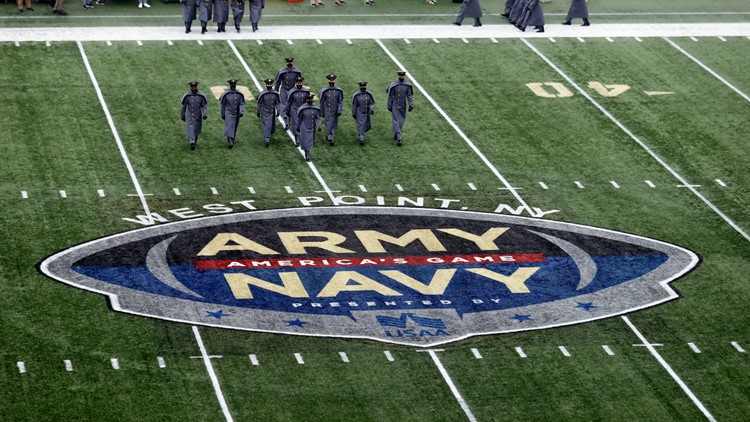NEW YORK — For a few hours at the end of the college football season, the United State Military Academy at West Point and the United State Naval Academy meet on the football field.
It is now played on a cold December Saturday in the northeast, sometimes on white snow that blankets the field. There are no other major football games played that day.
The game comes after the announcement of all the bowl games but the week before bowl season begins. The conversations around that time are breaking down playoff matchups and coaching changes. Outside of college football, it is the last push toward the NFL postseason and the dog days of the basketball season.
Yet, those conversations cease when Army and Navy take the field, the stadium not only filled with fans but with cadets and midshipmen who also shift their focus from their higher calling to their intense, but also friendly and respectful rivalry with each other.
Generations ago, both Army and Navy were football powerhouses, combining for four national championships. Those days, however, have long since passed.
Yet, perhaps winning the Army-Navy game is greater feeling that any championship. A national championship is merely for the fans of the sport or of that university.
Watching Army beat Navy or Navy beat Army transcends sports, yet it is unique how it transcends sports. Most transcendant sports moments deal with athlete who become cultural icons. This reaches the casual viewer on an emotional level, where they witnesses the emotions felt by the cadets and midshipmen, who go from boisterous supporters of their respective academies back to the future leaders of our military.
At the end of the game, perhaps the game's best moment is the sining of the academies' alma maters. Both teams gather at the losing academy's side of the field first and sing that school's alma mater, respectfully and beautifully.
Then, in a moment unmatched in sports, both teams sprint to the other side of the field. The winning team's players jump in excitement. Some join their fellow students in the stands. Then, in a moment's notice, they stand back addition to "sing second." It is not uncommon to see these young men in tears during the singing of both alma maters.
The game is perhaps the best representation of America itself. Many, if not all Americans, have been touched in some way by someone who answered their country's call.
Like America, the game represents survival in face of hardships. The game continued uninterupted through World War II, through 9/11 and most recently through the COVID-19 pandemic.
The game is democratic, played by cadets and mishipmen from all around the country. There is no divide line on race, religion or economic background. They are all dressed in their formal uniforms, a representation of not just what America is, but all that it could be. That despite the rivalry, at the end of day, they honor each other with the upmost respect.
Go Army, Beat Navy! Go Navy, Beat Army!



